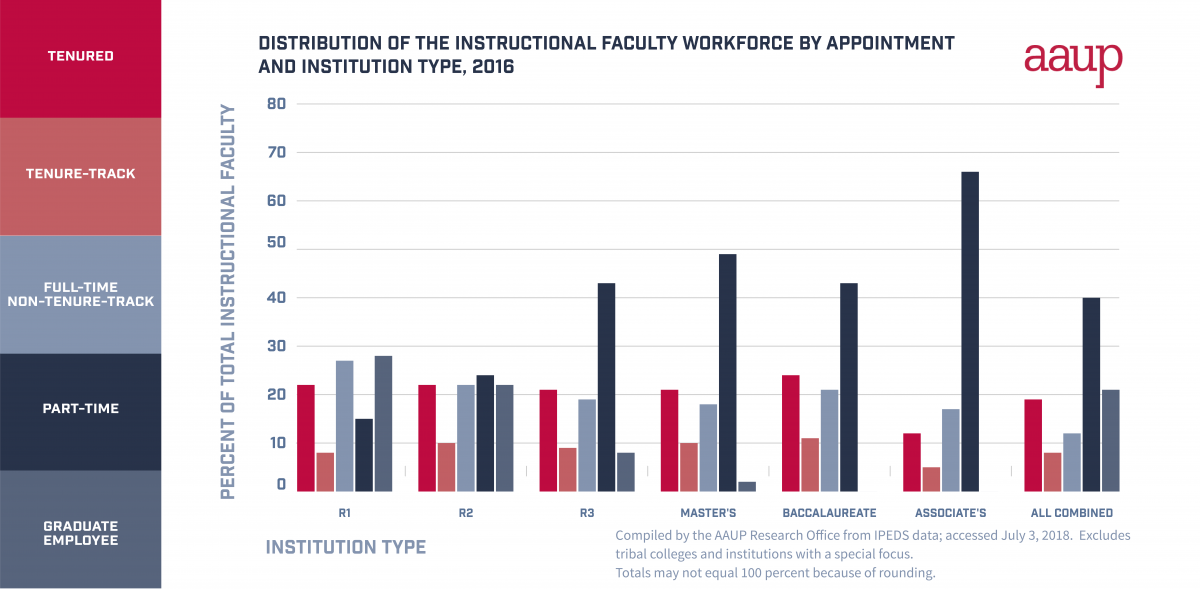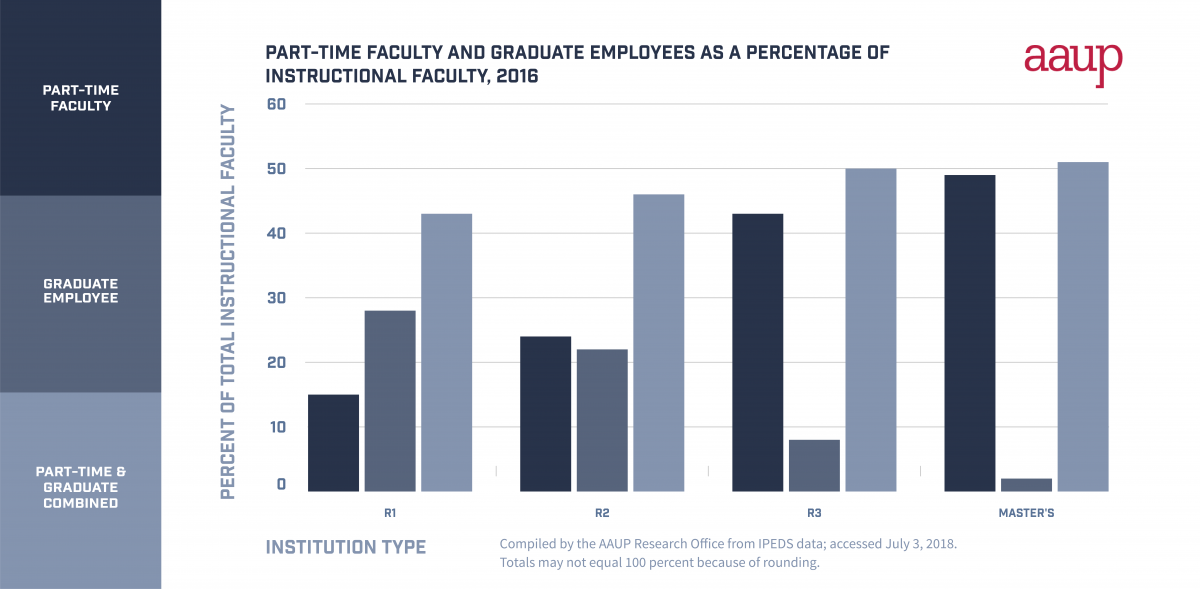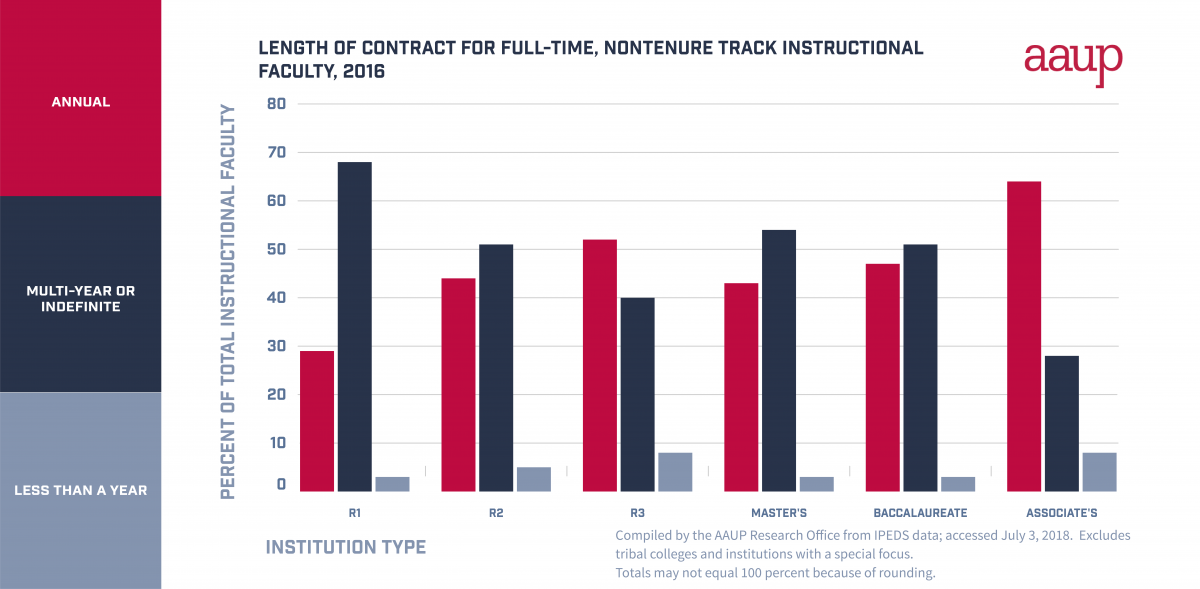- About
- Programs
- Issues
- Academic Freedom
- Political Attacks on Higher Education
- Resources on Collective Bargaining
- Shared Governance
- Campus Protests
- Faculty Compensation
- Racial Justice
- Diversity in Higher Ed
- Financial Crisis
- Privatization and OPMs
- Contingent Faculty Positions
- Tenure
- Workplace Issues
- Gender and Sexuality in Higher Ed
- Targeted Harassment
- Intellectual Property & Copyright
- Civility
- The Family and Medical Leave Act
- Pregnancy in the Academy
- Publications
- Data
- News
- Membership
- Chapters
Data Snapshot: Contingent Faculty in US Higher Ed
AAUP’s Data Show Weakening Protections for Academic Freedom
Over the past few decades, the tenure system in US higher education has eroded. At its best, the tenure system is a big tent, designed to unite a diverse faculty within a system of common professional values, standards, rights, and responsibilities. Tenure protects academic freedom by insulating faculty from the whims and biases of administrators, legislators, and donors, and provides the security that enables faculty to speak truth to power and contribute to the common good through teaching, research, and service activities.
The AAUP has taken a look at the data around tenure and the casualization of faculty labor. We looked at overall trends and broke out data regarding full-time contingent faculty and part-time and graduate-student instructors. Using data drawn from the Integrated Postsecondary Education Data System (IPEDS), our findings highlight the current status of the academic labor system in US higher education. At all US institutions combined, the percentage of instructional positions that is off the tenure track amounted to 73 percent in 2016, the latest year for which data are available. The highest percentage of contingent faculty appears at two-year institutions, where tenure-track positions make up less than 20 percent of faculty positions. While a little less than 50 percent of faculty positions at master’s and baccalaureate institutions are part-time, more than 65 percent of positions at two-year institutions are. Part-time teaching positions tend to be the least secure and worst remunerated teaching positions in higher education, with low per-course pay and few benefits. For the most part, both full- and part-time non-tenure-track faculty roles are insecure, unsupported positions with little job security and inadequate due process protections.
Since the principal purpose of tenure is to safeguard academic freedom, the trend toward an increasingly contingent faculty is deeply worrisome. Free inquiry, free expression, and open dissent are critical for student learning and the advancement of knowledge. When faculty members can lose their positions because of their speech or research findings, they cannot properly fulfill their core responsibilities to advance and transmit knowledge.
Click here to download the complete data snapshot
Click here for more data visualizations




